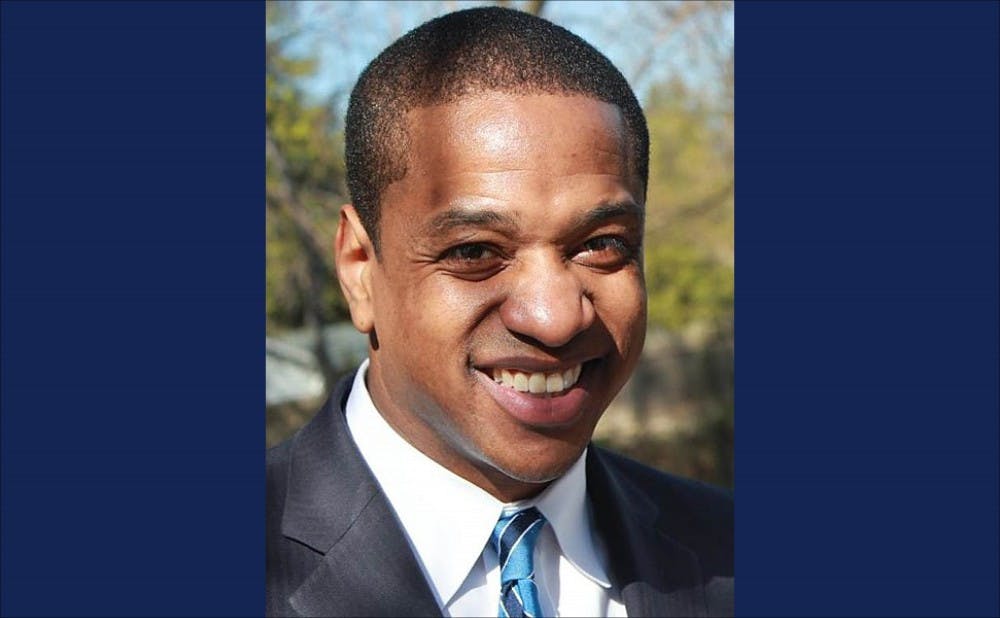Four months after two women accused Virginia Lt. Gov. Justin Fairfax, Trinity ’00, of sexual assault and rape, Fairfax’s lawyer is pressing for an investigation into the allegations.
On Wednesday, attorney Barry Pollack sent letters to the district attorneys of Durham and Suffolk County, Mass., detailing Fairfax’s accounts of his relationships with Vanessa Tyson and Meredith Watson and disputing the women’s narratives. Attached to the letters are the results of polygraph tests that Fairfax underwent in March, which suggest that Fairfax’s responses were truthful.
The letters urge the DAs to conduct “objective and thorough” criminal investigations into the cases and report the results publicly.
“While I have left several messages, to date, I have not been able to speak with you or anyone else from your Office about this matter. In an effort to expedite the process, I am writing this letter to provide you the necessary background,” Pollack wrote in the letter to the Durham District Attorney Santana Deberry.
In a press release, Nancy Erika Smith, Watson’s attorney, claimed that Fairfax’s calls for an investigation are a cover for not wanting to answer questions publicly. She called the polygraph results “voodoo” since they are inadmissible in Virginia court.
In early February, Tyson, an associate professor of politics at Scripps College who spent last year as a research fellow at Stanford University, accused Fairfax of sexual assault in an incident that occured while they were attending the 2004 Democratic National Convention in Boston. Days later, Watson, Trinity ’01, alleged that Fairfax raped her when they were undergraduates at Duke.
He has denied both claims.
Fairfax, who had served on the Sanford School of Public Policy’s Board of Visitors, was asked to step down after Watson’s allegation became public.
Both women later requested the opportunity to publicly testify in a Virginia state legislature hearing. In an interview on “CBS This Morning,” Tyson said that survivors of sexual assault “need to be heard.”
In late February, Republican leadership in the Virginia House of Delegates announced plans to move forward with a hearing on the allegations against Fairfax, a Democrat. However, despite negotiations between Virginia Republicans and Democrats, no hearing has been scheduled by mid-June.
In a March 31 letter to Republican Rob Bell, chairman of the House Courts of Justice committee, Democratic Minority Leader Eileen Filler-Corn expressed “serious concerns regarding whether such a hearing in a political body would be impartial.” She also questioned the Virginia legislature’s ability to handle criminal allegations without legal subpoena and investigative powers.
Instead, Filler-Corn suggested inviting an “independent, third-party entity” to hold the hearing.
Kathryn Gilley, communications director for the Virginia House Democratic Caucus, told The Chronicle that Republicans have not acknowledged Filler-Corn’s proposal or any of the concerns outlined in the letter. She also accused Virginia Republicans of speaking more with the press than with Democrats.
“Republicans have not been willing to work with us in good faith. They turn every step of communication into a political firestorm in the press,” Gilley said.
The Chronicle was unable to reach Bell, who has been leading planning efforts for the hearing. Parker Slaybaugh, director of communications for Virginia House Speaker Kirk Cox, declined to answer any specific questions about the allegations, citing Cox’s lack of direct involvement in the hearing.
Meanwhile, Lauren Burke, a spokeswoman for Fairfax, said that the lieutenant governor opposes any hearing organized by the Virginia legislature and that law enforcement officials should lead investigations in the cities where the alleged events occurred.
However, neither Tyson nor Watson has indicated interest in a criminal investigation.
The Washington Post reported in April that Durham District Attorney Santana Deberry had reached out to Watson in February, but Watson has expressed no interest in filing a criminal complaint.
“She has no interest in becoming a media personality or reliving the trauma that has greatly affected her life,” Nancy Erika Smith, Watson’s attorney, said in a February statement.
Tyson was also not interested in pursuing a criminal investigation.
“Investigations often allow people in power to sweep things under the rug. And that’s just a pattern, as a political scientist, I’ve seen emerge,” Tyson said during a March interview on “CBS This Morning.”
“If Justin Fairfax wanted the public to know the truth, he would have welcomed the hearing in the Virginia legislature requested by Ms. Tyson & Ms. Watson,” Smith said in the press release. “All parties will testify under oath and present witnesses. That is the last thing in the world Fairfax wants and he has fought it at every turn.”
Watson also accused Corey Maggette, a former Duke basketball player, of raping her prior to the alleged incident with Fairfax. She said that a Duke dean discouraged her from pursuing the claim against Maggette, which contributed to her later decision to not report Fairfax.
Maggette has denied the allegation.
Michael Schoenfeld, Duke vice president for public affairs and government relations, wrote in an email to The Chronicle that the university counsel’s office has been reviewing the alleged events. He declined an interview request and provided the following statement.
“We are continuing to gather information regarding the processes and procedures [that] were in place during the time period in which these events were alleged to have occurred (1999-2000), and whether those processes and procedures were activated and followed,” Schoenfeld wrote.
He released a similar statement to The New York Times and Deadspin in February and March, respectively.
Get The Chronicle straight to your inbox
Signup for our weekly newsletter. Cancel at any time.

